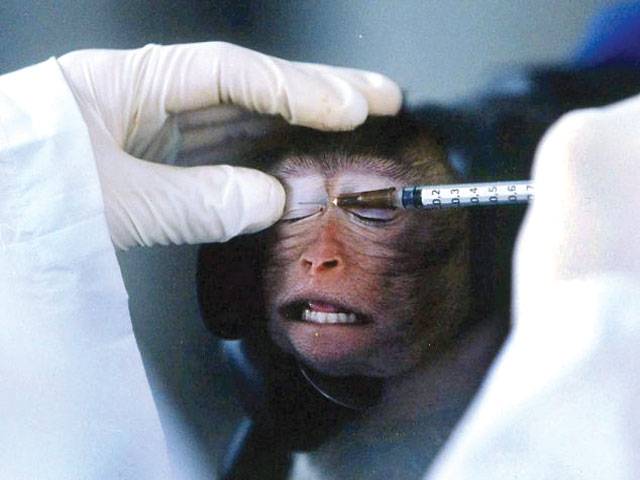Beijing - Experimental drugs will be used on farms of artificial humans as a replacement for live animal testing within three years, experts claim.
Smartphone-sized microchips replicating human lungs, livers and other organs are being used to test the body’s reaction to new drugs. They are branded as ‘human on a chip’ and developers hope to create ‘human farms’ to replace the controversial technique of live animal testing.
Chips emulating two and four organ systems are already being used, with future versions expected to extend to replicate all the vital functioning organs. Across the world, more than 100million animals are controversially used every year to test chemicals, food and drugs before they hit the market.
Uwe Marx, a Berlin-based tissue engineer for developers TissUse, said the development of a ‘10 organ chip’ was expected within three years in a move that could ‘revolutionise drug development’. Mr Marx said: ‘In the future, it will be possible, for example, to significantly reduce the number of animals used in pharmaceutical research and to substitute current alternative methods to animal testing.’
If their system was approved, he said it would ‘close down most of the animal-testing laboratories worldwide’, according to the Sunday Times. Speaking at the World Congress on Alternatives and Animal Use in the Life Sciences in Prague, the Times reported Mr Marx as saying he hoped to create ‘human farms made up of hundreds of the machines’.
The technology bears similarities to the 1999 science fiction movie The Matrix, in which humans are kept in ‘farms’ in order to harvest energy from their bodies
Last year an EU ban on the sale of cosmetics developed through animal testing came into force. However, the number of scientific animal experiments carried out in the UK is growing. Home Office statistics show that 4.11million experiments were carried out in university, charity and commercial labs in 2012 - an 8 per cent jump on the previous year. It was the highest number of scientific animal experiments conducted since 1982 and came three years after the Coalition pledged in its programme for government to ‘work to reduce the use of animals in scientific research’.
Wednesday, April 17, 2024
Experimental drugs to be used on ‘artificial humans’

Caption: Experimental drugs to be used on ‘artificial humans’
Pride and hype as F1 roars back to China after Covid absence
10:36 PM | April 16, 2024
No let-up in Karachi street crime incidents
10:35 PM | April 16, 2024
Stock market today: Most of Wall Street weakens again as Treasury yields rise more
10:34 PM | April 16, 2024
Muslim K-popstar Daud Kim buys land to build mosque in South Korea
10:33 PM | April 16, 2024
Punjab Stadium unavailability derails National Challenge Cup 2023 Final Round
10:28 PM | April 16, 2024
Political Reconciliation
April 16, 2024
Pricing Pressures
April 16, 2024
Western Hypocrisy
April 16, 2024
Policing Reforms
April 15, 2024
Storm Safety
April 15, 2024
Democratic harmony
April 16, 2024
Digital dilemma
April 16, 2024
Classroom crisis
April 16, 2024
Bridging gaps
April 16, 2024
Suicide awareness
April 15, 2024
ePaper - Nawaiwaqt
Advertisement
Nawaiwaqt Group | Copyright © 2024





